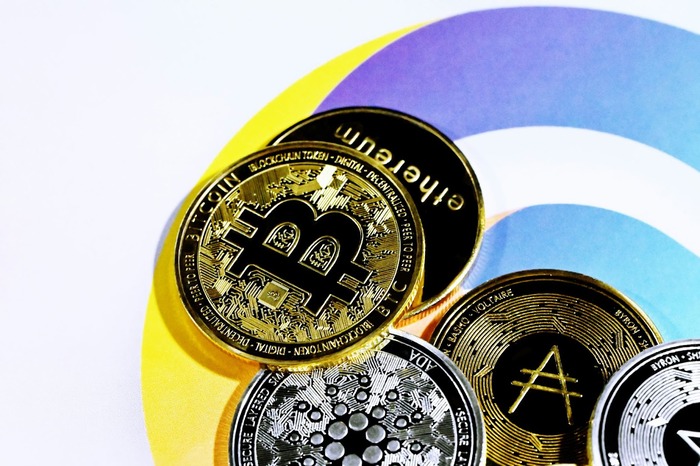What Do You Need To Play Crypto Games?

With the increasing popularity of cryptocurrency, it’s no surprise that the gaming industry is embracing this digital revolution. Crypto games, including blockchain-based video games and crypto casino games, are offering players new ways to engage with their favorite pastimes, all while integrating cutting-edge technologies like blockchain and cryptocurrency.
If you’re looking to dive into the world of crypto gaming, there are several key requirements to ensure you’re prepared to participate in these exciting and innovative games.
1. A Crypto Wallet
To get started in crypto gaming, the most essential tool you’ll need is a crypto wallet. Just as you need a physical wallet to store your cash, a crypto wallet is necessary for managing your digital currency. A crypto wallet stores your cryptocurrency securely and allows you to send, receive, and hold different types of digital assets.
With a crypto wallet, you can easily and conveniently use crypto to fund your online video and casino gaming. There are video games or crypto play-to-earn games that can be funded using coins like Bitcoin. Similarly, a number of online casinos now accept crypto coins like Solana and Ethereum.
Wagering with crypto is becoming popular as players look to take advantage of the anonymity, privacy, speed, and lower fees that digital currency offers to bettors.
Because of this many gamers often visit new Solana casino options to buy in, wager, and withdraw their winnings using crypto while reaping all the benefits that virtual coins offer. Whether you’re video gaming or casino gaming, you’ll need a wallet to store your assets before getting started.
There are two main types of crypto wallets to consider:
- Hot Wallets: These are online wallets that allow for quick and easy access to your cryptocurrency, making them ideal for everyday transactions and gaming.
- Cold Wallets: These wallets are offline and provide higher security for storing cryptocurrencies for long-term use.
For playing crypto games, a hot wallet is often sufficient for everyday transactions and in-game purchases, while cold wallets are recommended for storing assets you don’t plan to use regularly.
2. Cryptocurrency
Once you have a crypto wallet set up, you need cryptocurrency to start playing. There are several cryptocurrencies commonly used in crypto gaming, but the most popular are:
- Bitcoin (BTC): As the most widely recognized and oldest cryptocurrency, Bitcoin is accepted in many crypto games and crypto casinos. It’s often used for both in-game transactions and as a form of betting in crypto casinos.
- Solana (SOL): Solana is a popular cryptocurrency in gaming, known for its fast transactions and low fees. It supports smart contracts, making it ideal for decentralized applications (dApps) and play-to-earn games, offering a scalable and efficient blockchain for game developers.
- Stablecoins: Virtual coins like Tether (USDT) and USD Coin (USDC) are pegged to the value of a traditional currency (e.g., the U.S. dollar). These offer stability and are often used for in-game transactions in games that require a more stable asset.
To start playing crypto games, you will need to purchase some of these cryptocurrencies and transfer them into your wallet. This can be done through exchanges like Binance, Coinbase, or Kraken, where you can buy cryptocurrencies using traditional currencies like USD or EUR.
3. Understanding Blockchain Technology
Blockchain is the backbone of crypto games, and understanding its basic principles will enhance your gaming experience. In simple terms, blockchain is a decentralized ledger technology that records transactions in a secure, transparent, and immutable way.
In the context of crypto games, blockchain serves a few key functions:
- Ownership of Assets: Blockchain ensures that in-game assets like skins, characters, or virtual real estate are genuinely owned by players. These assets are represented as NFTs (Non-Fungible Tokens), which are unique and verifiable on the blockchain.
- Play-to-Earn (P2E) Models: Many crypto games implement P2E models, where gamers can earn crypto or NFTs just by playing, completing tasks, or participating in events. Blockchain ensures that these earnings are secure and tradable, enabling players to buy, sell, or trade their assets within or outside of the game.
- Smart Contracts: Smart contracts are self-executing contracts with the terms of the agreement directly written into lines of code. They automatically trigger actions when conditions are met, making them an integral part of decentralized gaming ecosystems. In crypto games, smart contracts can govern things like prize distributions, player-to-player transactions, or in-game economies.
A basic understanding of how blockchain works and the role of NFTs and smart contracts will help you navigate the world of crypto gaming more confidently.






